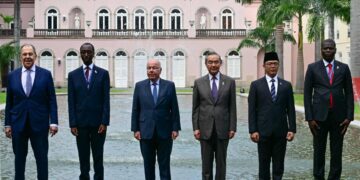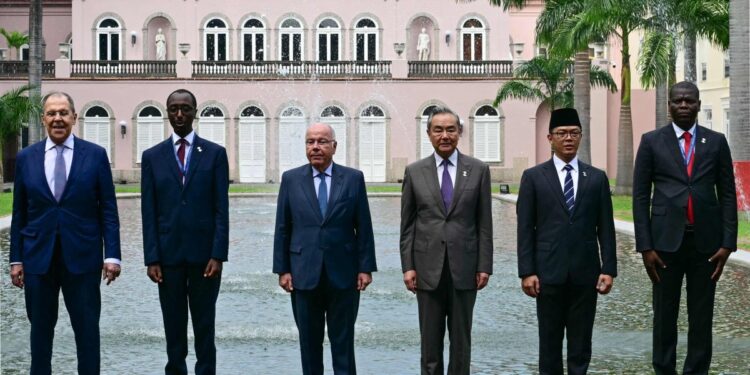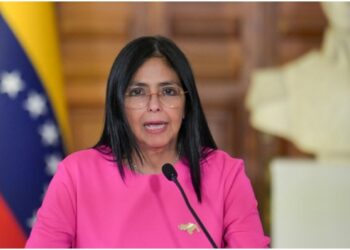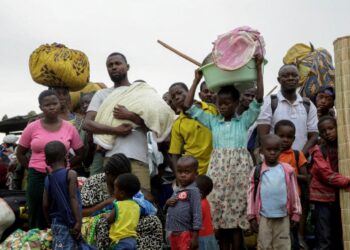By Enyichukwu Enemanna
In response to the new barrage of tariffs announced by the U.S. President Donald Trump, foreign ministers from the BRICS bloc of developing nations on Monday met to discuss a shared defence of the global trade system.
The meeting in Rio de Janeiro, Brazil, is expected to produce a joint statement criticising “unilateral measures” on trade from the group which has as members the host nation Brazil, Russia, India, China, and South Africa, in addition to six more nations recently added.
“The ministers are negotiating a declaration to reaffirm the centrality of… multilateral trade negotiations as the main axis of action in trade,” Brazilian Ambassador Mauricio Lyrio said.
“They will reaffirm their criticism of unilateral measures of any origin, which has been a longstanding position of BRICS countries.”
The expanded BRICS group, which includes Egypt, Saudi Arabia, the United Arab Emirates, Ethiopia, Indonesia, and Iran, who were admitted last year, are facing challenges arising from the export tariffs announced by Washington.
China, which was hit with 145% tariffs on its exports to the United States, has pushed for a harsher tone in the communiqué. However, a source familiar with negotiations said the final text will be critical but not confrontational.
The BRICS group as a whole has come under fire from Trump, who threatened another 100% in tariffs if the bloc moves ahead with a single currency to replace the dollar as the major currency for trade.
With an eye on the United Nations climate summit Brazil is hosting in November, the BRICS ministers will also discuss a shared position on climate finance.
Major developing nations, including China, face growing pressure from wealthier nations to contribute to financing adaptation and mitigation initiatives in the poorest countries.
“What is not on the agenda is the revision of which countries have to pay for the energy transition and the countries that can eventually, voluntarily, also finance it. This distinction is absolutely fundamental,” said Lyrio.
“The financial obligation to finance the fight against climate change and the energy transition in developing countries lies with rich countries,” he added.



































